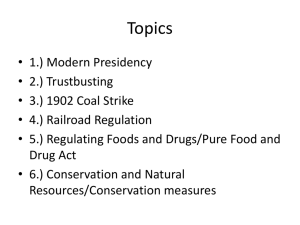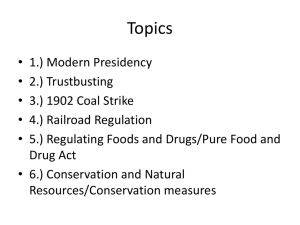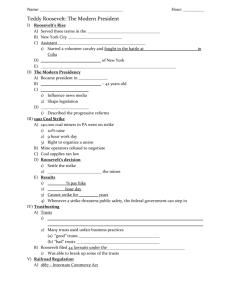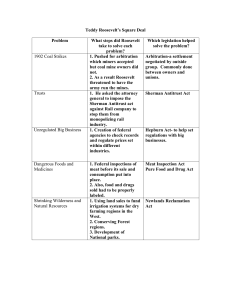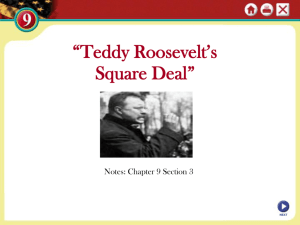Slide 1
advertisement
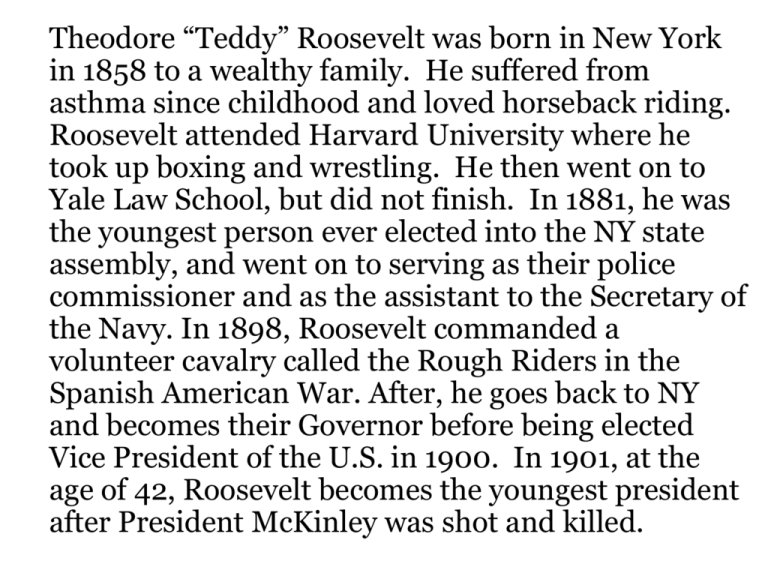
Theodore “Teddy” Roosevelt was born in New York in 1858 to a wealthy family. He suffered from asthma since childhood and loved horseback riding. Roosevelt attended Harvard University where he took up boxing and wrestling. He then went on to Yale Law School, but did not finish. In 1881, he was the youngest person ever elected into the NY state assembly, and went on to serving as their police commissioner and as the assistant to the Secretary of the Navy. In 1898, Roosevelt commanded a volunteer cavalry called the Rough Riders in the Spanish American War. After, he goes back to NY and becomes their Governor before being elected Vice President of the U.S. in 1900. In 1901, at the age of 42, Roosevelt becomes the youngest president after President McKinley was shot and killed. Square Deal Program of Progressive reforms designed to protect the common people against big business Natural Environment Ranchers allowed their cattle to overgraze the Great Plains; coal companies cluttered the land with spoil dumps; lumber companies ignored the effect of their logging operations on flood control and neglected to plant trees to replace those they had cut down; cities dumped untreated sewage and industrial wastes into rivers which poisoned the streams and created health hazards. 1902 Coal Strike 140,000 miners went on strike and demanded 20% raise, a 9 hr work day, and rights to organize a union. Mine operators refused to bargain with the labor leaders. Five months into the strike, winter was near and coal reserves were running out. Schools and factories shut down, hospitals lost heat. Roosevelt called both sides to meet at the White House and come to an agreement. Roosevelt threatened to take over the mines: agreement was made for a 10% raise, 9 hr work day and no union. Railroad Regulation • Interstate Commerce Act – Designed to regulate the railroad industry and break up their monopolies – Interstate Commerce Commission • Enforced the new law • The Elkins Act – Made it illegal for railroad officials to give, and shippers to receive refunds for using certain railroads • Hepburn Act – Limited the distribution of free railroad passes (briberies) Progressive Reforms Under Roosevelt • • • • • • Anthracite Coal Strike 1902 Trustbusting Pure Food and Drug Act Railroad Regulation Conservation Civil Rights – WEB DuBois and Booker T. Washington
